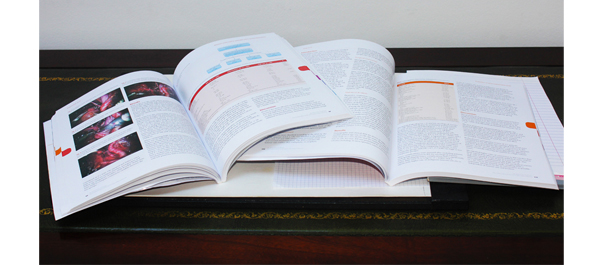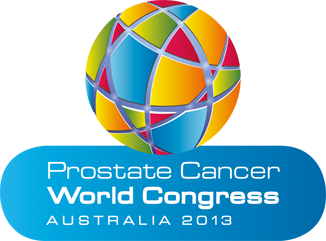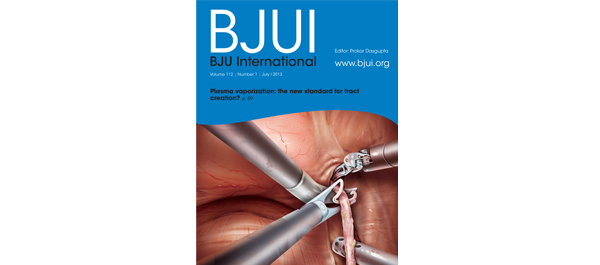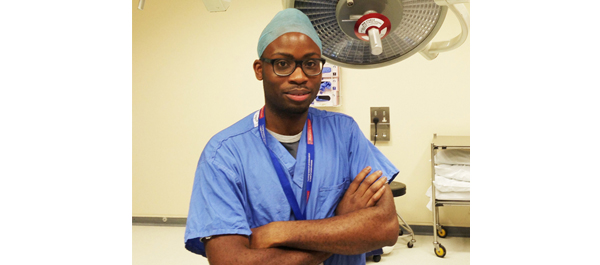
Fish Oil Causes Prostate Cancer: fact or fishy tale?
4 Comments
/
Following the recent fish oil and prostate controversy (which BJUI Chairman Dr David Quinlan recently blogged about, the August International Urology Journal Club discussion on Twitter was based on the recent high-profile (and controversial) paper “Plasma Phospholipid Fatty Acids and Prostate cancer risk in the Select trial”, available by advance access from the Journal of the National Cancer Institute, June 10, 2013.
In the recent weeks, many concerned patients had attended urologist…

Editorial: Fesoterodine is superior to extended-release tolterodine for OAB
The treatment of overactive bladder (OAB) is still based on antimuscarinics, although the recent introduction of β3 agonists and botulinum toxin A has opened a window of new opportunities, the range of which is yet to be defined.
The clinical development of fesoterodine has taken the Urological community by surprise and raised levels of expectation. From a pharmacological standpoint fesoterodine is just a ‘smart drug’ because it is the pro-drug of 5-hydroxymethyl tolterodine (5-HMT) the…

The Melbourne Consensus Statement on Prostate Cancer Testing
The final, peer-reviewed version of this Consensus Statement has now been published in BJUI. You can find it here. The full citation is Murphy, D. G., Ahlering, T., Catalona, et al. (2014), The Melbourne Consensus Statement on the early detection of prostate cancer. BJU International, 113: 186–188. doi: 10.1111/bju.12556
A consensus view on the early detection of prostate cancer, led by experts at the Prostate Cancer World Congress, Melbourne, 7–10th August 2013
Recent guideline statements…

Surgeon Responsibility
In an outstanding editorial in the current issue of the Journal of Urology (https://dx.doi.org/10.1016/j.juro.2013.05.031) my friend and colleague Jay Smith (who has accompanied us when we climbed Mt Kinabalu in Borneo and on cycle challenges in Malawi and Madagascar to raise funds for The Urology Foundation) asks the important question as to who decides when a surgeon has the requisite skills and experience to subject a patient to an operative procedure? He points out that a patient entrusting…

Functional urology in the BJUI
Although urological oncology is by far our largest section, it has increasingly become evident to us that the most cited part of the BJUI is functional urology. While this may come as a surprise, it is a reflection of the high quality of submissions that appear in this section. For your reading pleasure here are three “functional” articles in this issue worthy of attention. The paper from David Ginsberg also appears on the web journal as an article of the week.
In the first of our functional…

Fish Oils and Prostate Cancer
If a Blog can be a call for help, then this is it! Since the recent high-profile paper in JNCI (https://jnci.oxfordjournals.org/content/early/2013/07/09/jnci.djt174.abstract) suggesting that Omega 3 supplements increase the risk of Prostate Cancer and induce high grade prostate cancer, I am plagued by patient and colleague concerns about whether or not men should stop taking Omega 3 supplements! I know that health care providers all over the world have been similarly inundated. What are we to say…

Editorial: Accepting the positive results of unconventional methods
It is sometimes difficult to accept the results of a study based on a concept that is unfamiliar, involves unknown physiological mechanisms, or shows results that defy rational explanation. Remote ischaemic preconditioning (RIPC) is probably not a familiar topic to most urologists and, admittedly, was not familiar to this reviewer until now. Yet the authors, based on animal models and clinical data from non-urological literature, conducted a prospective, surgeon and patient ‘blinded’, randomised…

Editorial: Equivalent outcomes for monopolar and bipolar TURP; but are we overlooking the potential for improvement in sexual function after surgery?
Both BPH and sexual function (SF) have a major impact on quality of life in older men. Sexual dysfunction is a complex process encompassing both erectile and ejaculatory dysfunction, as well as reduced libido and difficulty achieving orgasm. Whilst retrograde ejaculation is an almost inevitable consequence of TURP, the evidence that TURP causes erectile dysfunction is conflicting. This is probably attributable, at least in part, to a lack of high-quality historical data. Studies now show that LUTS…

Urologists up in arms? ….Diclofenac no longer indicated in high risk groups
This blog is an update form the originally published comment article in BJU International, 110: 607–608.
DOI: 10.1111/j.1464-410X.2012.11330.x
On the 23rd June 2013 the MHRA (The Medicines and Healthcare products Regulatory Agency) issued a press release stating that ‘patients with serious underlying heart conditions, such as heart failure, heart disease, circulatory problems or a previous heart attack or stroke should no longer use diclofenac’. The MHRA is responsible for regulating all…

Editorial: Impact of ERSPC study on PSA testing in the Netherlands
General practitioner (GP)'s view on screening for prostate cancer in the Netherlands: the impact of a randomized trial
I am grateful to be given the opportunity to provide an editorial comment on a so-far unique publication investigating the impact of results of the European Randomized study of Screening for Prostate Cancer (ERSPC) on the attitude of Dutch GPs in requesting a serum determination of PSA in men aged >40 years. Access to data from one of the major health insurance companies and…
